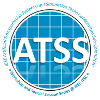Welcome to the Workshop on Human Factors in Intelligent Vehicles in its third edition.

This workshop is promoted by IEEE ITS Society’s Artificial Transportation Systems and Simulation (ATSS) Technical Activities Sub-Committee.
The workshop will take place at the Adoba Hotel in Dearborn, Michigan, USA on Sunday 8 June 2014.
It is the third edition to be co-placed with the 2014 IEEE Intelligent Vehicles Symposium, to be held in Dearborn, Michigan, USA, June 8 - 11, 2014.
NEWS:
2014/06/10 You can download the "Safety and Human Factors Standards for Driving" presentation by Dr. Paul Green here
Aim and Scope
The IEEE Workshop on Human Factors in Intelligent Vehicles (HFIV’14) collocated with the 2014 IEEE Intelligent Vehicles Symposium, to be held in Dearborn, Michigan, USA, June 8-11, 2014, is the third edition of its series.
The HFIV’14 welcomes and encourages contributions reporting on original research, work under development and experiments of different fields related to Human Factors.
The IEEE Workshop series on Human Factors in Intelligent Vehicles aims to foster discussion on issues related to the analysis of human factors in the design and evaluation of intelligent vehicles technologies, in a wide spectrum of applications and in different dimensions. It is expected to build upon a proper environment to disseminate knowledge and motivate interactions among the technical and scientific communities, practitioners and students, allowing state-of-the-art concepts and advances to be further developed and enhanced.
IV technologies have experienced a great improvement in the last couple of decades, turning vehicles into more interactive counterparts in transportation and mobility systems. However, the impact of such technologies on traffic awareness for the drivers and their behavior towards improving driving performance while reducing road accidents as well as psycho and physical exhaustion still demands proper tools and approaches.
Whereas the feasibility of incorporating new technology-driven functionalities to vehicles has played a central role in the automotive design, not always safety issues related to interaction with the new in-vehicle systems have been taken into consideration. Additionally, other aspects are equally important and need to be analyzed, such as the impact technologies that support specific driving functions play on the primary task of driving the vehicle, as well as their impact on overall performance of transportation systems. Besides current industrial achievements that feature today’s vehicles with a number of important driving assistance systems, the perspective of autonomous driving vehicles populating urban settings pose even more challenging issues.
Also, the information and functionalities that rely on new ways of communication have to be presented in a non-intrusive way while complying with specific design requirements. A system that guarantees efficiency of use, comfort and user satisfaction is inarguably an important contribution towards a more conscious driving behavior that directly results from the adoption of IV technologies.
Topics of Interest
Some topics of interest include (but are not limited to) the following:
- Intelligent user interfaces
- Human-machine interaction
- Human-in-the-loop simulation
- Cognitive aspects of driving
- Human behavior and capability, affecting system design and operation
- Modeling and simulation of driving performance
- Behavioral modeling and validation methodologies
- Tools and approaches to analyze human factors
- Ergonomics of traveler information systems
- Anthropometric layout of vehicular technical systems
- Mixed Reality
- Cross-Cultural Design
- Augmented Cognition
- User Experience and Usability
- Computer Aided Ergonomics Analysis
- Effects of in-vehicle systems on driver performance
- Tools and methodologies for usability assessment
- Input/Output modalities in system ergonomic design
- Leaning, Anticipation, and Adaptation balance
- Driving Education and Training Methodologies
Paper Submission and Publication
Prospective authors are invited to submit contributions reporting on their current research and ideas that may potentially motivate active and fruitful discussion during the workshop. Each paper will be analyzed by the Workshop’s International Program Committee according to quality of presentation, relevance and potential contribution.
Papers will be included in the Workshop Proceedings in a digital format and will be available on IEEEXplore. Authors must follow the IEEE Conference format in the preparation of their manuscripts of maximum 6 pages in standard IEEE double column PDF format for peer-review by the workshop International Program Committee. All accepted papers will imply that at least one of the co-authors attends the workshop to present the work. Authors will be given a certain time to orally present their papers and discussion will be actively motivated among attendees.
Detailed submission instructions can be found on the Workshop Web site at HFIV’14, under the Submissions option.
Manuscript submission
HFIV’14 Workshop
IEEE IV’14
Oganizing Committee
Institute of Ergonomics, Department of Mechanical Engineering, Technische Universität München, Germany
Laboratory of Artificial Intelligence and Computer Science, Department of Informatics Engineering, University of Porto, Portugal
International Program Committee (to be extended)
Enrique Cabello Pardos, Universidad Rey Juan Carlos, Madrid, Spain
José Luis Alba Castro, Universidad de Vigo, Vigo, Spain
Fernando García Fernández, Universidad Carlos III, Madrid, Spain
Paul A. Green, University of Michigan, USA
Heinrich Hußmann, Ludwig Maximilians Universität München, Germany
Ian Marsh, SICS, Swedish ICT, Kista, Sweden
Brendan Morris, University of Nevada, Las Vegas, USA
Philippe Palanque, University Paul Sabatier, Toulouse, France
Mehran Shirazi, Simon Fraser University, Canada
Janet Wesson, University of Port Elizabeth, South Africa
Manuscript preparation
The 3rd HFIV Workshop welcomes contributions within the scope and topics of the forum. While preparing your manuscript, please do follow the same formatting guidelines specified by IEEE IV’14 main conference standard IEEE double column PDF of maximum 6 pages. Further, due to space constraints on the proceedings of the conference, all papers are limited to 2 MB and should preferably be less than 500 kB.
For the final version of the papers, please use Word or Latex templates and test the pdf file using the Papercept tool to avoid problems caused by wrong paper formats.
Further details on formatting, frequently asked questions and templates are available on the Conference Web Site.
Manuscript submission
Contributions must be electronically submitted in PDF files only, via the Papercept tool to the workshop organizers for peer-review by the workshop International Program Committee.
Please, to upload your paper follow the procedure below:
1. Log into the Papercept tool.
2. Select workshop submission
3. Specify the following code number for the Workshop on Human Factors in Intelligent Vehicles: 3wx8n
Reviewing process
The reviewing process of contributions is certainly one of the most important aspects of building a strong, attractive and stimulating forum for practitioners and the scientific community. Each manuscript submitted to HFIV’14 will undergo a peer-reviewing process by at least three members of the Workshop’s International Programme Committee (IPC) to ensure accepted papers will be of great interest and motivate an open and broad discussion among the audience. Contributions will be reviewed according to relevance to HFIV’14, originality and novel ideas, technical soundness and quality of presentation. Given the nature and aims of the forum, undergoing projects bringing into discussion state-of-the-art and cutting-edge ideas and novel trends are highly encouraged.
Authors of accepted papers must follow and carefully consider reviewers’ comments, guidelines, and suggestions during the preparation of their camera-ready version for inclusion in the workshop proceedings in a digital format.
Publication
Accepted papers will be included in the workshop proceedings in a digital format and will be made available through IEEEXplore.
At least one co-author of each paper must confirm registration at the workshop as well as the oral presentation during the event to ensure the paper will be considered for publication.
Authors will be given a certain time to orally present their papers and discussion will be actively motivated among attendees.
Camera-ready manuscripts must be sent to the workshop chair due on April 11, 2014.
Conference Program
The workshop will take place on Sunday 8 June 2014 in the Pierce & Arrow room, Adoba Hotel in Dearborn, Michigan, USA.
You can access the IEEE IV’14 conference program through the Conference Web Site.
Keynote Speaker
Short bio

Dr. Paul A. Green is a research professor in UMTRI's Driver Interface Group and an adjunct professor in the University of Michigan (U-M) Department of Industrial and Operations Engineering (IOE). He is also the past president of the Human Factors and Ergonomics Society. Dr. Green teaches automotive human factors and human-computer interaction classes. He is the leader of U-M's Human Factors Engineering Short Course, the flagship continuing education course in the profession, now in its 55th year.
Dr. Green leads a research team that focuses on driver distraction, driver workload, and workload managers, navigation system design, and motor-vehicle controls and displays. That research makes extensive use of instrumented cars and driving simulators.
Dr. Green's research has been published in close to 300 journal articles, proceedings papers, and technical reports. He was the lead author of several landmark publications: the first set of U.S. DOT telematics guidelines and SAE recommended practices concerning navigation system design (SAE J2364, the 15-second rule) and design compliance calculations (SAE J2365). He is the lead author of SAE J2944, Operational Definitions of Driving Performance Measures and Statistics.
Before joining UMTRI, Dr. Green was an engineering staff member at the Philadelphia Naval Shipyard and a safety and health engineer for Scovill. At U-M, he has held appointments in the Departments of Psychology and Mechanical Engineering, the School of Art (Industrial Design), and the School of Information. He has a B.S. degree in mechanical engineering from Drexel University and three degrees from U-M: an M.S.E. in IOE, an M.A. in psychology, and a joint Ph.D. in IOE and psychology.
Dr. Paul Green will present the topic with the title: "Safety and Human Factors Standards"
HFIV’14 Workshop Final Program
| 2pm-3pm | Invited Talk "Safety and Human Factors Standards"( PDF ), Dr. Paul Green, University of Michigan |
| 3.30pm-4pm | "Hand Gestures to Control Infotainment Equipment in Cars"; Francisco Parada, Elisardo Gonzalez, Jose Luis Alba-Castro |
| 4pm-4.30pm | "Studying the Driving Performance of Drivers with Children Aboard by Means of a Framework for Flexible Experiment Configuration"; Cristina Olaverri-Monreal, Joel Gonçalves, Klaus Bengler |
| 4.30pm-5pm | "Testing Advanced Driver Assistance Systems with a Serious-Game-Based Human Factors Analysis Suite", João S. V. Gonçalves, Rosaldo Rossetti, João Jacob, Joel Gonçalves, Cristina Olaverri-Monreal, António Coelho, Rui Rodrigues |
Inquiries and further information
Please send your requests by e-mail to the workshop organizers.
Contact details
If necessary, the Organizing Committee’s contact details are:

Institute of Ergonomics
Faculty of Mechanical Engineering
Technische Universität München
Boltzmannstraße 15
D-85747 Garching bei München, Germany
Phone: + 49 89 289-15413
Fax : + 49 89 289-15389
Email: olaverri @ lfe . mw . tum . de (no spaces)

LIACC/DEI/FEUP
Faculty of Engineering, University of Porto
Rua Dr Roberto Frias, S/N
4200-465 Porto, Portugal
Phone: +351 22 508 1566
Fax: +351 22 557 4103
Email: rossetti @ fe . up . pt (no spaces)








